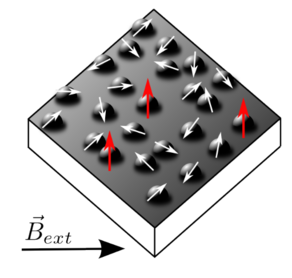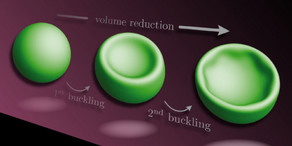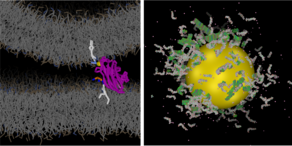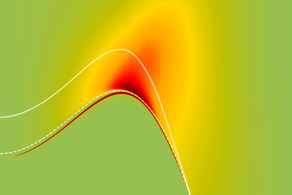Wilhelm and Else Heraeus Dissertation Prize 2021
- Anders

Dr. Eickhoff developed a mapping of strongly correlated electron systems onto an effective cluster model [1,2] under supervision of Prof. Anders. For the first time, this mapping allows to systematically separate the the Ruder-Kittel-Kasuya-Yoshida (RKKY) interaction into an ferromagnetic part and an anti-ferromagnet part. His paper [2] on that subject was highlighted by the Physical Review B as Editors' suggestion. In two subsequent publications [3,4] he pointed out that an analytic prediction can be made to distinguish between a local pseudo-gap spectrum and a finite density of states in the Kondo insulator regime by applying an extended Lieb-Mattis theorem [3]. This allows novel insights on the emerging local moments and their potential screening in the Kondo-hole problem [4].
Furthermore, Dr. Eickhoff significantly contributed to the development of a many-body theory with predictive power for inelastic electron-tunneling spectroscopy probing strongly correlated many-body systems by scanning tunneling microscopy. This approach [5] was applied to understand the influence of molecular vibrations onto scanning tunneling data of NTCDA molecules on a silver surface.
Literature References
[1] "Effective low-energy description of the two impurity Anderson model: RKKY interaction and quantum criticality", Fabian Eickhoff, Benedikt Lechtenberg and Frithjof B. Anders, Phys. Rev. B 98, 115103 (2018)
[2] "Strongly correlated multi-impurity models: The crossover from a single-impurity problem to lattice models", Fabian Eickhoff, Frithjof B. Anders, Phys. Rev. B 102, 205132 (2020)
[3] "Spectral properties of strongly correlated multi impurity models in the Kondo insulator regime: Emergent coherence, metallic surface states and quantum phase transitions", Fabian Eickhoff and Frithjof B. Anders, Phys. Rev. B 104, 165105 (2021)
[4] "Kondo holes in strongly correlated impurity arrays: RKKY driven Kondo screening and hole-hole interactions", Fabian Eickhoff, Frithjof B. Anders, Phys. Rev. B 104, 045115 (2021)
[5] "Inelastic electron tunneling spectroscopy for probing strongly correlated many-body systems by scanning tunneling microscopy", Fabian Eickhoff, et al, Phys. Rev. B 101, 125405 (2020)







